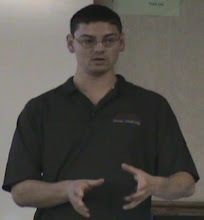 (Image is from the paper itself.)
(Image is from the paper itself.)Here's the abstract of the paper:
In this paper we explore the structure and applicability of the Distributed Measurement Calculus (DMC), an assembly language for distributed measurement-based quantum computations. We describe the formal language’s syntax and semantics, both operational and denotational, and state several properties that are crucial to the practical usability of our language, such as equivalence of our semantics, as well as compositionality and context-freeness of DMC programs. We show how to put these properties to use by constructing a composite program that implements distributed controlled operations, in the knowledge that the semantics of this program does not change under the various composition operations. Our formal model is the basis of a quantum virtual machine construction for distributed quantum computations, which we elaborate upon in the latter part of this work. This virtual machine embodies the formal semantics of DMC such that programming execution no longer needs to be analysed by hand. Far from a literal translation, it requires a substantial concretisation of the formal model at the level of data structures, naming conventions and abstraction mechanisms. At the same time we provide automatisation techniques for program specification where possible to obtain an expressive and user-friendly programming environment.

No comments:
Post a Comment